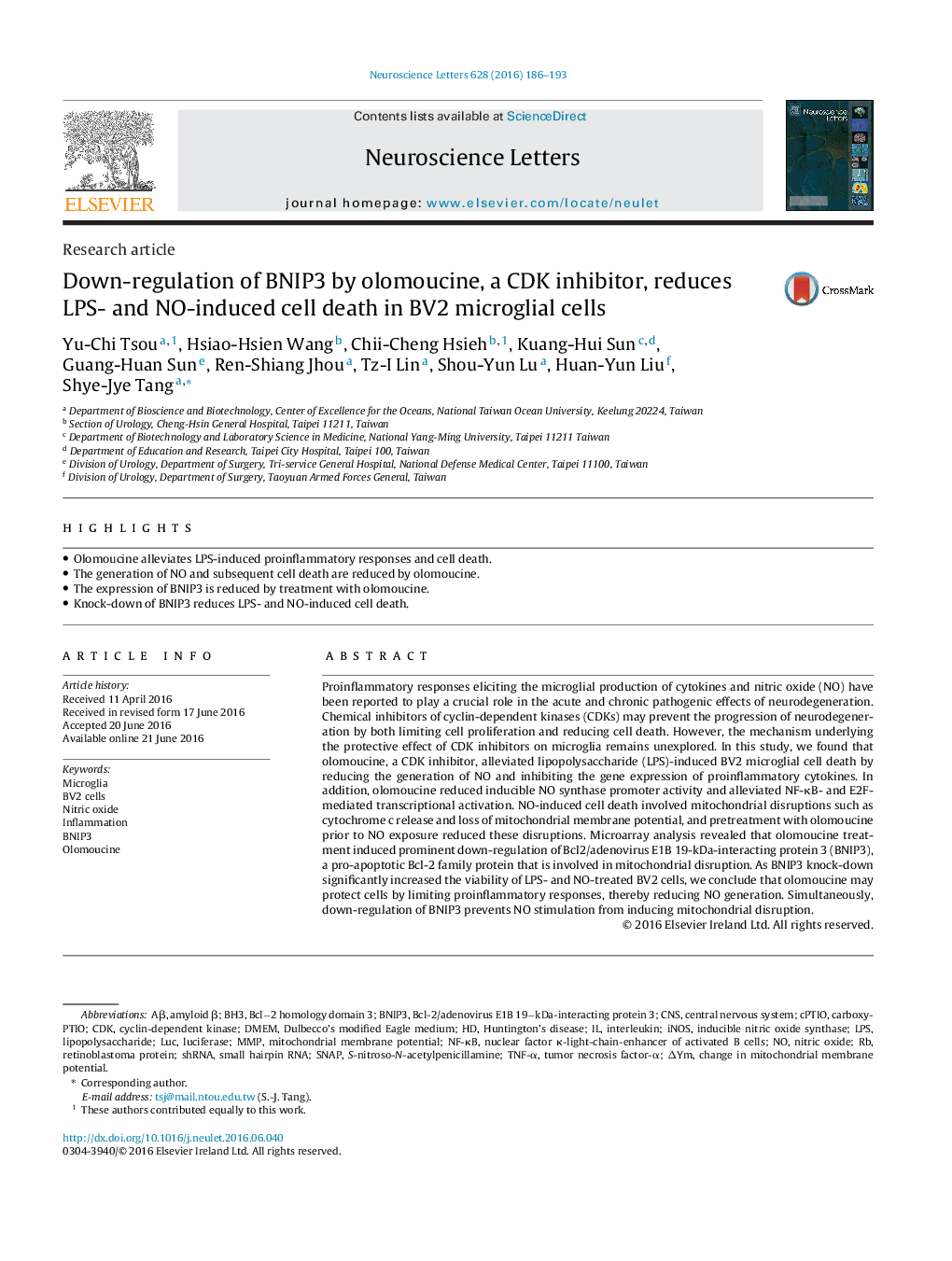| Article ID | Journal | Published Year | Pages | File Type |
|---|---|---|---|---|
| 6279405 | Neuroscience Letters | 2016 | 8 Pages |
Abstract
Proinflammatory responses eliciting the microglial production of cytokines and nitric oxide (NO) have been reported to play a crucial role in the acute and chronic pathogenic effects of neurodegeneration. Chemical inhibitors of cyclin-dependent kinases (CDKs) may prevent the progression of neurodegeneration by both limiting cell proliferation and reducing cell death. However, the mechanism underlying the protective effect of CDK inhibitors on microglia remains unexplored. In this study, we found that olomoucine, a CDK inhibitor, alleviated lipopolysaccharide (LPS)-induced BV2 microglial cell death by reducing the generation of NO and inhibiting the gene expression of proinflammatory cytokines. In addition, olomoucine reduced inducible NO synthase promoter activity and alleviated NF-κB- and E2F-mediated transcriptional activation. NO-induced cell death involved mitochondrial disruptions such as cytochrome c release and loss of mitochondrial membrane potential, and pretreatment with olomoucine prior to NO exposure reduced these disruptions. Microarray analysis revealed that olomoucine treatment induced prominent down-regulation of Bcl2/adenovirus E1B 19-kDa-interacting protein 3 (BNIP3), a pro-apoptotic Bcl-2 family protein that is involved in mitochondrial disruption. As BNIP3 knock-down significantly increased the viability of LPS- and NO-treated BV2 cells, we conclude that olomoucine may protect cells by limiting proinflammatory responses, thereby reducing NO generation. Simultaneously, down-regulation of BNIP3 prevents NO stimulation from inducing mitochondrial disruption.
Keywords
CDKiNOSBNIP3BV2 cellsBH3AβshRNAnuclear factor κ-light-chain-enhancer of activated B cellsLUCDMEMLPSS-nitroso-N-acetylpenicillamineMMPNF-κBcPTIODulbecco’s modified Eagle mediumsmall hairpin RNAamyloid βinflammationOlomoucineinterleukinHuntington’s diseasetumor necrosis factor-αCNSinducible nitric oxide synthasecentral nervous systemSNAPTNF-αluciferaselipopolysaccharideMicrogliaNitric oxideMitochondrial membrane potentialretinoblastoma proteinCarboxy-PTIOcyclin-dependent kinase
Related Topics
Life Sciences
Neuroscience
Neuroscience (General)
Authors
Yu-Chi Tsou, Hsiao-Hsien Wang, Chii-Cheng Hsieh, Kuang-Hui Sun, Guang-Huan Sun, Ren-Shiang Jhou, Tz-I Lin, Shou-Yun Lu, Huan-Yun Liu, Shye-Jye Tang,
